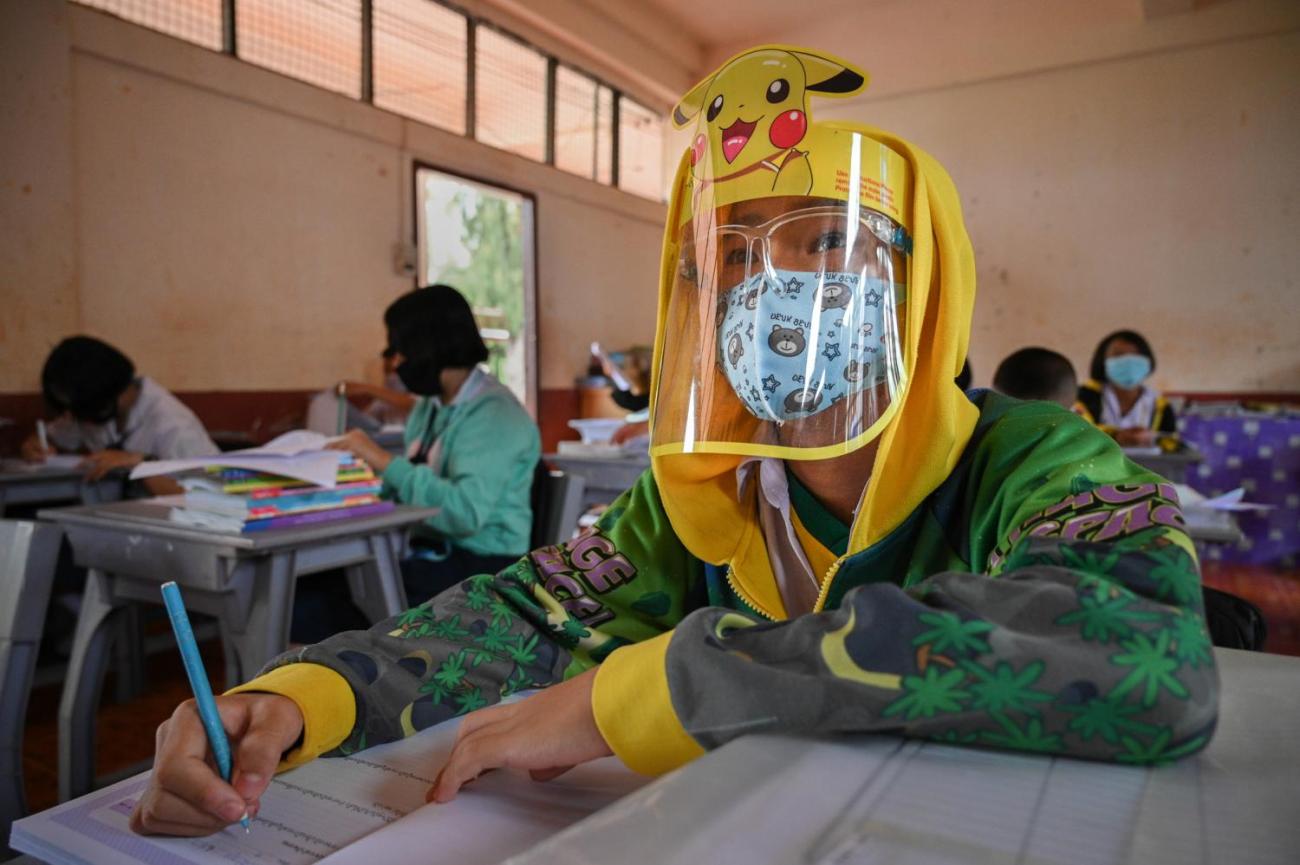‘I find myself studying better at school, because it is easier to focus on the lesson. When I don't understand something, I can interact with the teacher right away’. – Karantee Thongton, Grade 12, Kajonkietsuksa International School, June 2021, Bangkok.
After 20 months of disrupted learning due to the Covid-19 pandemic, children in Thailand need to return to their schools. In doing so, students must safely resume in-person learning as soon as possible, and they must be fully supported in catching up on lost learning. Their future depends on it.
School reopening planned for next month must not be delayed as children -- out of classrooms for many months -- are facing barriers to online learning, mental distress, risk of exposure to violence and abuse, missed school lunches and routine vaccinations.
This leads to significant learning loss, weakened social skills and a heightened risk of permanently dropping out, all with lifelong impacts. Many parents are unable to continue working while balancing their children's care and learning needs, and some have lost their jobs entirely.
Even in areas with high rates of Covid, the World Health Organization (WHO) recommends schools safely reopen by taking all possible steps to minimise transmission of the virus, including the Delta variant.
With mask policies, physical distancing, adequate ventilation, alternating physical presence and frequent hand washing and cleaning of surfaces, coupled with well-managed compliance measures, classrooms can prove safer for children, no less for teachers, than many other environments.
The Thai government's decision to vaccinate more than 600,000 teachers and education workers and prioritise the Pfizer vaccine for 4.5 million students is a welcome and a timely step to help ensure school safety. Covid-19 prevention measures under its "Sandbox: Safety Zone in School" programme, such as risk assessment, school entry passes, teaching in bubbles, and emergency response procedures, are a positive example of what can be done to reopen schools safely.
Just as important as getting children safely back in class is getting them back on track in learning. Even before the pandemic, less than six in 10 children in Grades 2 and 3 in Thailand had basic reading skills, and just under half had basic numeracy skills, according to the 2019 Multiple Indicator Cluster Survey by the National Statistical Office and United Nations Children's Fund (Unicef).
A recent study by the Equitable Education Fund, with the Office of the Basic Education Commission, Department of Local Administration and police, found about 40,000 low-income students in Grades 6 and 9 in Thailand reported they were at risk of dropping out or not pursuing further education.
Next month, all students, especially the most disadvantaged, will need help catching up on lost learning since early 2020, and teachers will need help in teaching critically important remedial programmes. The UN and the Equitable Education Fund will jointly assess children's learning recovery needs in the worst- affected provinces, with the intention of designing closely-tailored support for both students and teachers.
The urgency for providing support and services at school for the physical and mental well-being of students is more acute than ever. More than seven in 10 young people in Thailand are experiencing stress, worry and anxiety over family income loss and disrupted learning, according to a 2020 survey by the Children and Youth Council of Thailand, Unicef, the United Nations Development Program, and the United Nations Population Fund. And a survey of nearly 190,000 adolescents conducted by the Thailand Department of Mental Health from January of 2020 from last month indicates that 32% are at risk of depression; perhaps even more alarming, 22% are at risk of committing suicide.
The UN team in Thailand stands ready to support the government and all partners in acting today to ensure children's safe return to school tomorrow.
If we hesitate any longer, we risk worsening the chances for children to ever recover from an already daunting educational calamity.
Original article published on Bangkok post "Lack of schooling road to disaster", October 11.




